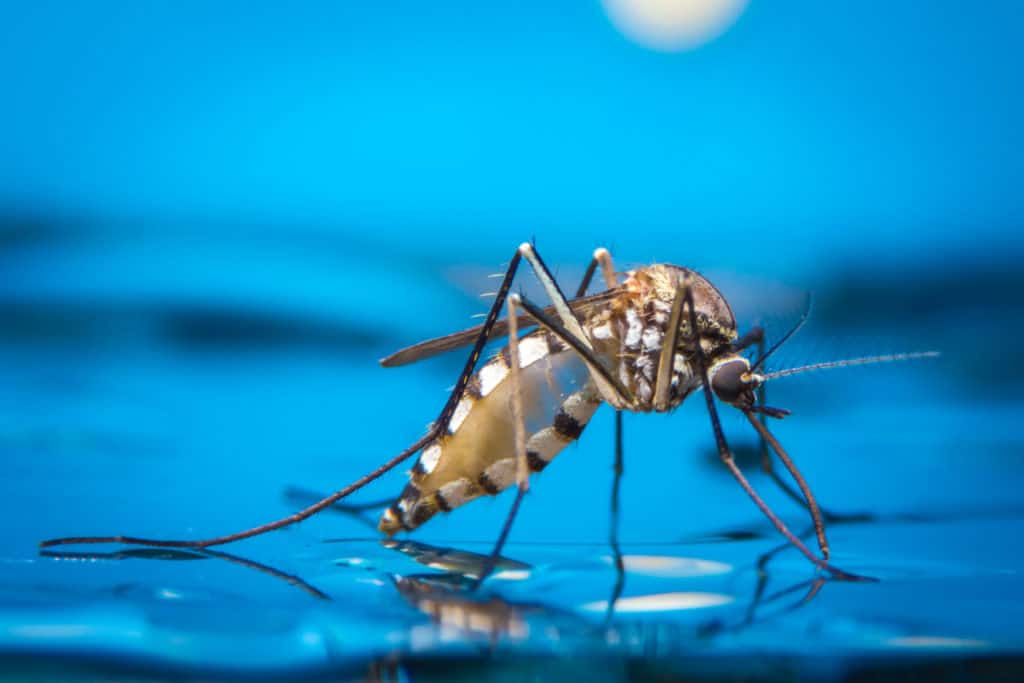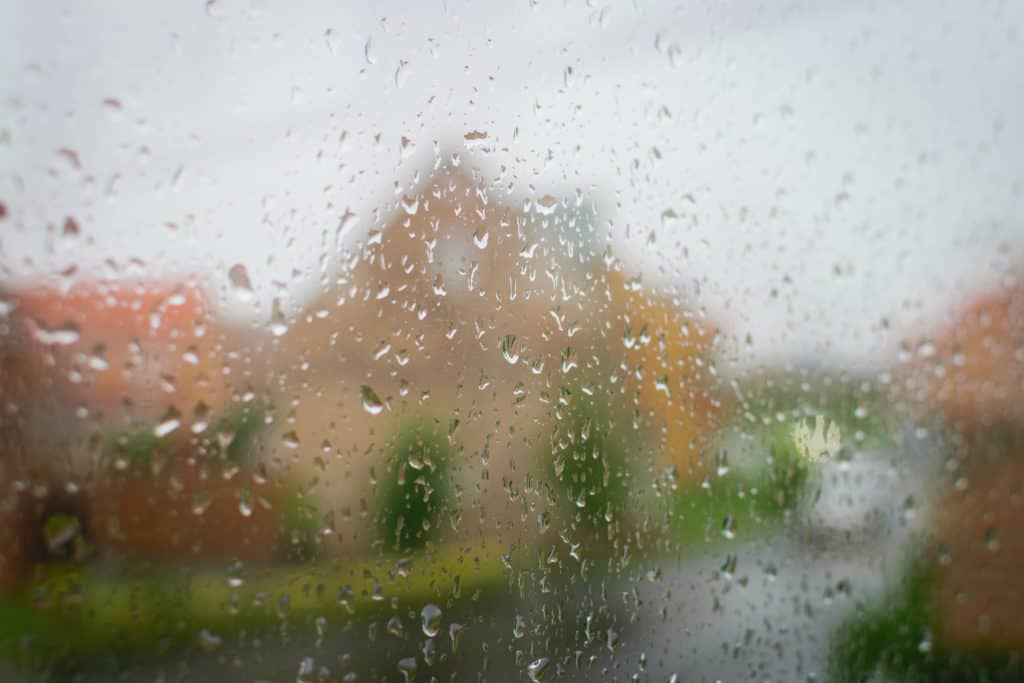Rain: Is it Good or Bad for Pest Control?
Rain: Is it Good or Bad for Pest Control?
Water as an Attractant
Pests need moisture to thrive. So, when water from your roof pools around the foundation of your home, you’re at risk of encountering more pest-issues. Probably the most infamous moisture loving pest is the mosquito, who lingers and breeds in areas with a high moisture concentration. Pooling water not only leads to more pests but can sometimes leak into your home or flood your basement, causing expensive damage to your residence. That is why it is especially important to make sure your downspouts are properly draining and that no debris is blocking/clogging the water flow in any nearby drains you may have. In this way, more often than not water does, indeed attract bugs. But… what about when it’s raining?
Surprisingly, many types of insects possess a unique set of waxy hairs and coatings over their bodies, effectively acting as a permanent rain repellant or natural raincoat. This makes rain simply a simple hindrance for some kinds of insects, while some aren’t even affected whatsoever. In fact, mosquitos have been found to be able to fly through light raindrops without problems (although it is important to note that they do seek shelter in heavy rain).

Water as a Deterrent
Interestingly, while rain and standing water may be attractants for some insects, the changes that indicate a coming storm many actually take part in reducing some pest populations. In a new study conducted by the combined efforts of both Canadian and Brazilian researchers studied the effects of impending rain on beetles, moths, and aphids. Prior to a storm, the air pressure will drop, indicating the oncoming wet weather. When these insects were exposed to such conditions there was an immediate and notable disinterest in mating. This is thought to be an “evolutionary adaptation” that formed in order to promote seeking shelter in times of rain, thereby avoiding the risk of being washed away or drowned in extensive, heavy rains. In theory this also means that periods of heavy rain in a given area may decrease the frequency of mating and thereby the populations of some species of insects.

Application and Maintenance of Pest Control Products
While rain can affect insects, it can also affect your pest control treatment times. Unfortunately, rain is unavoidable so your pest control experts will sometimes have to reschedule depending on the weather. Our pest control practices involve using EPA-approved products instead of synthetic chemicals, and the utilization of Integrated Pest Management, which is a multifaceted method of conducting pest control safely. IPM reduces the use of pesticides, replacing them with products that are safe for the ecosystem, as well as decreasing the overall use of products by 90% and eliminating pest control waste. Due to this, rain can mess with our products, making it difficult to properly apply or washing them away before they have a chance to dry. As such, we will always work to schedule you around the rain in order to best protect you against pests.

Citations
Nuwer, R. (2013) Insects Are Less Randy in the Rain, The Smithsonian Magazine. The Smithsonian Institute. Available at: https://www.smithsonianmag.com/science-nature/insects-are-less-randy-in-the-rain-515219/ (Accessed: October 2020).
The Various Personalities of Stinging Pests
The Various Personalities of 5 Stinging Pests The Various Personalities of 5 Stinging Pests Summary: Stinging insects are among the most common summer [...]
8 Creative Ways to Have a Pest-Free Fourth of July
8 Creative Ways to Have a Pest-Free Fourth of July 8 Creative Ways to Have a Pest-Free Fourth of July Summary: The Fourth [...]
A Simple Guide to Preventing Stinging Pests
A Simple Guide to Preventing Stinging Pests A Simple Guide to Preventing Stinging Pests Summary: Stinging insects are more active in warm weather, [...]
These 10 Natural Mosquito Repellents Can Actually Help
These 10 Natural Mosquito Repellents Can Actually Help These 10 Natural Mosquito Repellents Can Actually Help Summary: Natural mosquito repellents are easier to [...]
How to Get Rid of Carpet Beetles
How to Get Rid of Carpet Beetles How to Get Rid of Carpet Beetles Summary: Carpet beetles are sneaky pests that don’t usually [...]
How Do Roaches Affect Asthma and Allergies?
How Do Roaches Affect Asthma and Allergies? How Do Roaches Affect Asthma and Allergies? Summary: It’s no secret that pests impact human health, [...]

